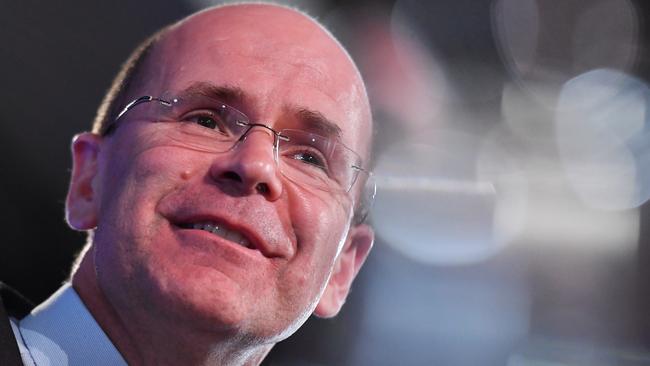‘Whatever it takes’ not good enough in the Covid-19 pandemic
Dealing with a pandemic crisis justifies extreme public health measures, but independent scrutiny should also be heightened.

Faith in Australia’s institutions has been seriously eroded by the lack of checks and balances on extraordinary powers used by health ministers during the Covid-19 pandemic and only a public inquiry such as a royal commission would effectively examine their actions, according to a constitutional expert.
UNSW deputy vice-chancellor planning and assurance George Williams also dismissed the new, independently funded Shergold review as a “worthy but ineffective” means of getting to the bottom of decisions about extreme measures such as lockdowns, curfews and state and international border closures that included prohibiting citizens from returning.
“It’s a long way from actually providing accountability for government,” Professor Williams said of the review.
Society was “right to vest quite extraordinary powers in our governments over these issues of human rights during the pandemic”, he said of instruments such as the Biosecurity Act 2015 and the NSW Public Order Act 2010’s section seven, but “even though we need decisive, strong leadership, we equally need very clear forms of accountability to give you a sense of just how needed this is and how remarkable these powers are”.
“When you bring about such measures, it has such a profound impact upon basic liberties. It demands heightened scrutiny, not lowered scrutiny,” he said.
The “range of whatever-it-takes clauses” that empowered leaders to do what they needed to protect the community and required the community to put “complete faith and trust in them to do so” raised “some very serious issues about whether, in fact, that trust has always been well placed, whether we have the right checks and balances in place”.
“We only have to look at the white hot anger that has emerged … to see that we’ve seen a very serious erosion in parts of the community of faith in our institutions and a clear sense of unfairness.”
Professor Williams told a Law Society of NSW seminar on the impact of the pandemic on human rights in NSW that there had been no effective scrutiny of decisions, parliament was absent from the debate in NSW because it had not sat between June and October last year and courts were not able to play much of a role.
“There’s no good excuse for parliament not to have sat during that period,” he said.
That some people who had doubts about the pandemic’s handling had been prepared to turn to extreme measures “rings alarm bells”, he said. “What their protests show … is there’s significant room for improvement when it comes to human rights during the pandemic.”
He said a UNSW study last year showed 83 per cent of people thought there should be a document setting out in clear language the rights and responsibilities of Australians; 74 per cent agreed that a charter of human rights would help people make sure government did the right thing.




To join the conversation, please log in. Don't have an account? Register
Join the conversation, you are commenting as Logout